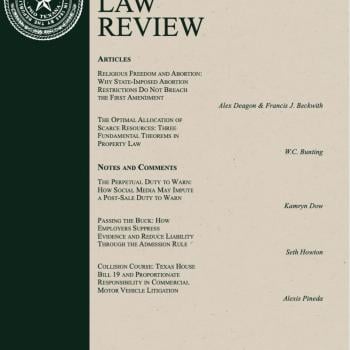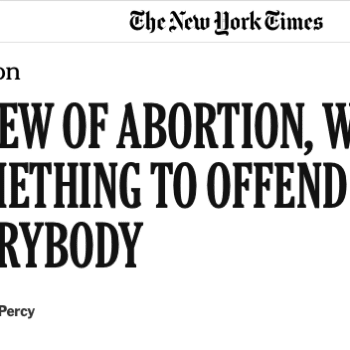That is the title of a 2006 article I published in the Journal of Medicine & Philosophy (31: 177-203). Here’s the abstract, as it  appears on the article’s first page:
appears on the article’s first page:
This article is a critical review of David Boonin’s book, A Defense of Abortion (Cambridge University Press, 2002), a significant contribution to the literature on this subject and arguably the most important monograph on abortion published in the past twenty years. Boonin’s defense of abortion consists almost exclusively of sophisticated critiques of a wide variety of pro-life arguments, including ones that are rarely defended by pro-life advocates. This article offers a brief presentation of the book’s contents with extended assessments of those arguments of Boonin’s that are his unique contributions to the abortion debate and with which the author disagrees: (1) Boonin’s critique of the conception criterion and his defense of organized cortical brain activity as the acquired property that imparts to the fetus a right to life: (2) Boonin’s defense of J. J. Thomson’s violinist argument and his distinction between responsibility for existence and responsibility for neediness and its application to pregnancy.
Here’s how the article begins (notes omitted):
It is difficult to believe that another book on the abortion controversy could contribute anything new to what appears to be an intractable dispute whose resolution is not imminent. David Boonin proves this notion wrong in his book, A Defense of Abortion (Cambridge University Press, 2002).
Although I am an abortion opponent, and thus I come to much different conclusions than does Professor Boonin, I found myself admiring his careful and rigorous method and his philosophical creativity, and learning much in the process. I will limit this review-article to a brief presentation of the book’s contents with extended assessments of those arguments of Boonin’s that are his unique contributions to the abortion debate and with which I find myself in disagreement.
You can read the entire article here.
Although David and I hold different views on the issue of abortion, I really like him as a philosopher. He is just the sort of critic and interlocutor that is a credit to the discipline. He sticks to the arguments, and rigorously so. Young philosophers, who may find themselves with a paucity of role models, can learn from his example.












